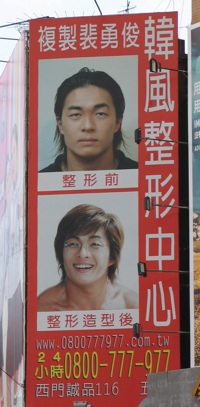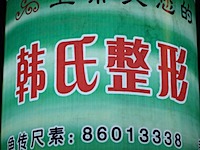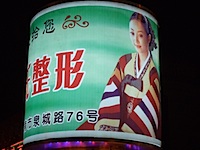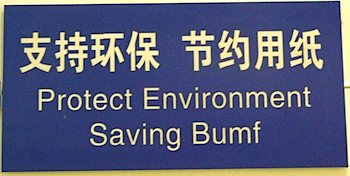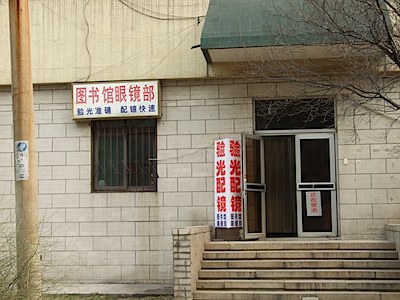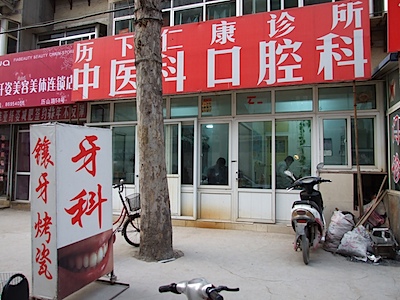I spent the afternoon in a coffee shop mining footnotes of various secondary accounts of the violence in the autumn of 1946 (it is also known as the Autumn Harvest Uprising, the October People’s Resistance, the October Riot Incident, the October Rebellion, and the Taegu Uprising) to see if I have been missing anything.
I thought to myself, you know, it is kind of depressing to see how little is actually available in Korean sources, as far as I have been able to find out so far, and especially when compared to the wealth of materials of widely varying quality coming out on the various violent uprisings in South Korea in 1948 (Yŏsu, Cheju-do, and so on). Though American military materials abound, in general, I been somewhat underwhelmed by the relative lack of accounts of the 1945-50 period on the Korean side. The explanation I hear everywhere is that the devastation of the Korean War of 1950-3 is much to blame.
Just as I was pondering this problem, two elderly men sat down next to me and carried on a conversation. Although the loud espresso machine in the background made it difficult, I overheard some of their conversation and could recognize my favorite linguistic phenomenon:
わざわざ…followed by some Korean
しがつはつか(四月二十日)완전히…more Korean
근대おれは…more Japanese
すまないな, 지난번…more Korean
あれはね、…followed by Korean sentence.
Some excellent code-switching going on. Sentences seemed to only switch completely into Korean when discussion got fast or emotional, but would switch back to Japanese at the beginning of a new topic with Korean words sprinkled in here and there in the middle of sentences, and the middle of Korean sentences throughout the conversation would get a Japanese word here and there, as if for emphasis.
This is something I have written about here at Muninn on several occasions (A code switching family in Seoul, code-switching in Taiwan, Japanese-Chinese code-switching couple in Taiwan, Chinese-English code switching in a Harvard campus coffee shop). It was something I saw on a number of occasions in Taiwan amongst older Taiwanese though, with the exception of older Koreans speaking to me in Japanese (such the Korean war stories I heard from this gentleman and this retired policeman) I have been looking forward to finding the same thing in Korea, where I know it happens.
After listening for a few minutes, I took advantage of a moment of silence between the two elderly friends and jumped in, using Japanese. A delightful conversation ensued, which eventually ended up in exactly the kind of code-switching between Korean and Japanese that was going on before I joined in, but now with some English thrown in (one of the two had worked 4 years in the US) here and there as well.
Both learnt their Japanese as children, having completed primary school during the colonial period. They were 13 and 14 when the colonial period ended, and were both a small minority in a good quality school made up of mostly Japanese students. “One day, our Japanese friends suddenly told us they had to go to Japan because they lost the war,” said one, “to which I replied, ‘Why do you have to go to Japan? Weren’t you born here?'” One was born and raised in Taegu, but was now living and still working in Japan, while the other grew up in Seoul. I asked the man from Taegu if he remembers anything about the violence in the autumn of 1946, he said someone told him about seeing the corpses of policemen being dragged by ropes through the streets, but he didn’t see anything himself.
I asked them about their Korean war experience. The man from Seoul says that he and his family were kidnapped by North Korean militia and taken to a town north of P’yŏngyang and put into a labor team, and that he was held for 100 days. He said every day was a nightmare there, his mother praying for their survival every day. He says he has almost blocked every memory of the experience out, “When I close my eyes all I can see is an image of the 태극기 flag.” He said that he escaped with his family when the US troops reached the area in the autumn of 1950. He then walked back to South Korea. His friend sitting across the table said, “I have never heard this story! Why do you tell this stranger but you’ve never told me this story?” He replied that this was a really painful (つらい) memory for him and he doesn’t want to recall it (思い出したくない).
I told them the biggest obstacle for people like me studying the period 1945-50 is the lack of materials. Even if the memories are painful, I encouraged them both to write down their stories, and like the boom of Japanese publishing their memoirs and diaries of wartime experiences in Japan in the last few decades has done, give historians and younger generations a chance to hear their stories. One of the guys answered, “いや、韓国は日本じゃない。ここでは、そういうような書く문화がない。” (Korea is not Japan. Here we don’t have that kind of culture of writing) Is that fair? Perhaps that generation just needs a bit more time and a bit more encouragement?
